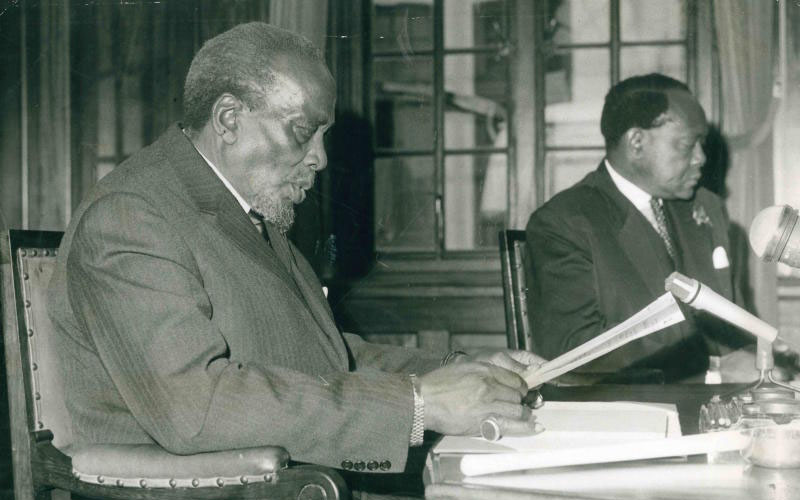×
The Standard e-Paper
Home To Bold Columnists

Former President Jomo Kenyatta duirng a ceremony at State House, Nairobi with the Attorney-General, Mr. Charles Njonjo [File]
As plumes of smoke billowed out of the Kariokor crematorium on Monday and dissipated above the city’s skyline, some dwellers of Majengo slums in Nairobi watched their dreams go up in smoke.